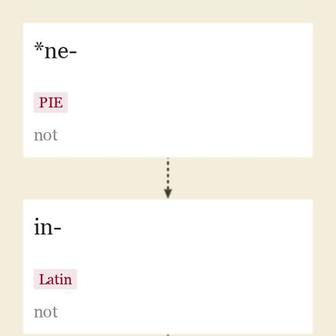immorality (n.)
1560年代,源自于 in-(1)的同化形式,意为“不,相反的”+ morality。
最早记录年份: 1560s
immorality 的相关词汇
in- (1)

这个词缀的意思是“不,相反,没有”(也可以是通过与后面的辅音音节化的 -n- 的同化而来的 im-, il-, ir-,这种趋势始于后期拉丁语),源自拉丁语 in- “不”,与希腊语 an-,古英语 un- 同源,均来自 PIE 词根 *ne- “不”。
在古法语和中古英语中,通常使用 en-,但大多数这些形式在现代英语中已经不再使用,只有极少数(例如 enemy)不再被视为否定的。在英语中的经验法则是,对于明显的拉丁语元素使用 in-,对于本土或本土化的元素使用 un-。
morality (n.)
14世纪晚期, moralite,“道德品质,品行或思想”,源自古法语 moralite(现代法语 moralité)“寓意(故事)的道德; 道德教育; 道德,品德”(13世纪),直接源自拉丁语 moralitatem(主格 moralitas)“方式,品质”,源自拉丁语 moralis “关于礼仪或道德的; 道德的”(参见 moral(形容词))。指“伦理责任的教义或系统”始于15世纪中期。指“善良,道德品质的特征”始于1590年代。
Where there is no free agency, there can be no morality. Where there is no temptation, there can be little claim to virtue. Where the routine is rigorously proscribed by law, the law, and not the man, must have the credit of the conduct. [William H. Prescott, "History of the Conquest of Peru," 1847]
没有自由意志,就没有道德。没有诱惑,就很难声称有美德。当例行程序严格受法律规定时,功劳应归于法律,而不是人。[威廉·H·普雷斯科特,“秘鲁征服史”,1847年]